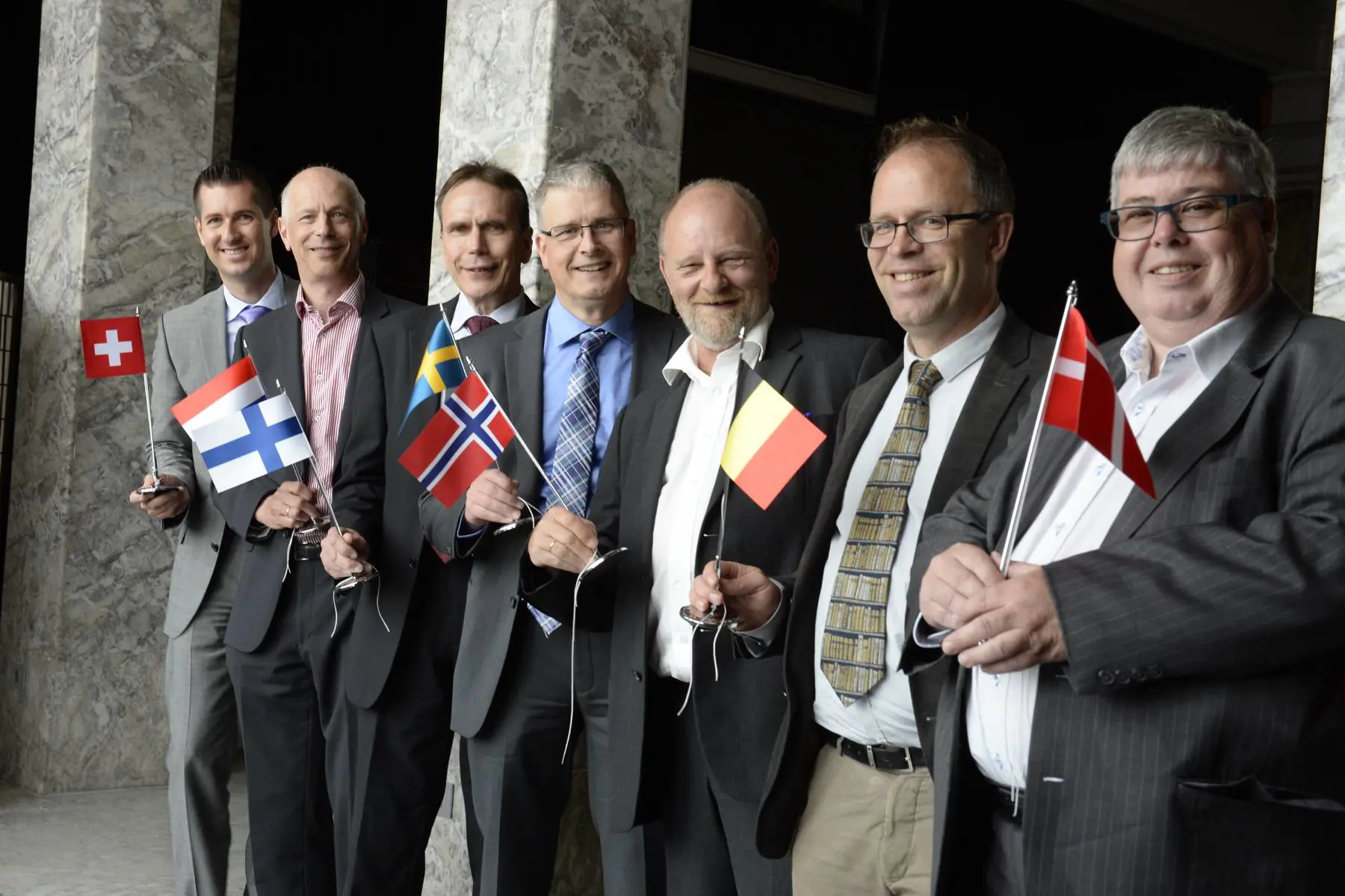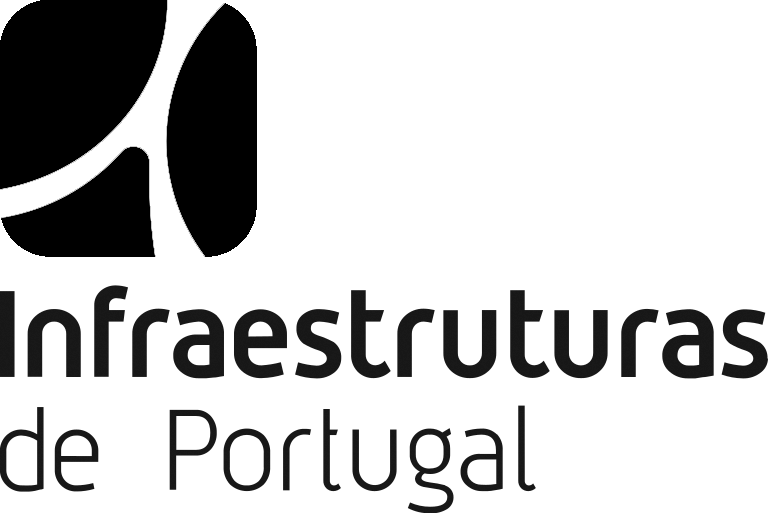Partners
The Eress partnership is a non-profit organisation, based on collaboration and innovation, committed to the integration of new partners, based on the same terms as the original partners. Fairness and a balanced split of both investment and operational costs is one of the fundamental principles underlying the partnership.

Becoming a partner
Any national entity that is responsible for the settlement of railway energy onboard trains can join Eress organisation.
This is a non-profit organization and there is no entry fee.

Partners

In May 2020 Société Nationale des Chemins de Fer Luxembourgeois (CFL) became the ninth partner of Eress.
CFL is the national railway company of Luxembourg. Founded in 1946, CFL operates both passenger and freight train services within Luxembourg as well as cross-border connections to neighboring countries. In addition, CFL is responsible for the maintenance and development of the railway infrastructure in Luxembourg.
The Eress partnership collaborates mainly within the areas regarding energy usage. CFL’s work on these areas are primarily improving energy efficiency, implementing renewable energy sourcing, infrastructure upgrades as well as energy monitoring and reporting.
Eress representative: Britta Schreiner

Adif, Administrador de Infraestructuras Ferroviarias, joined as the eighth partner of Eress in january 2020.
Adif is a Spanish government-owned company responsible for the management and maintenance of the national railway infrastructure, and operates under the ministry of transport, mobility, and urban Agenda.
The Eress partnership focuses on working together with the Adif’s energy department. The Department targets energy management, sustainability, and reducing environmental impact within the railway operations of Spain.
ADIF places significant emphasis on energy efficiency throughout its infrastructure. The Energy Department works on developing and implementing strategies to optimize energy consumption, reduce energy waste, and improve overall energy efficiency. This involves the use of energy-efficient technologies, infrastructure upgrades, and operational measures to minimize energy usage.
Eress representative: Maria Victoria Calleja Duro

Väylä is the Finnish Transport Infrastructure Agency responsible for planning, developing, and maintaining the transportation infrastructure in Finland. It was established in 2019 through the merger of three separate agencies: Finnish Transport Agency, Finnish Road Administration, and some parts of the Centre for Maritime Transport and Infrastructure.
The Finnish Transport Agency has been a part of Eress since 2013, making Finland the fifth partnering country. The agency manages the railway infrastructure, including tracks, stations, and signaling systems. Väylä collaborates with train operators to ensure the efficient and safe operation of rail services.
Väylä views their efforts towards energy efficiency and sustainability in the railway buissines as a fundamental aspect of their role as a transport infrastructure agency. By giving priority to energy management, research and innovation, and embracing renewable energy sources, Väylä strives to decrease their environmental footprint while ensuring safe and effective railway operations.
Eress representative: Anssi Saari

Bane NOR, then known as Jernbaneverket, is one of the founding parties of Eress. Bane Nor is a state-owned company responsible for the management, operation, and development of the national railway infrastructure in Norway. The company does not own any trains, but cooperate closely with train operating services to ensure efficient freight and passenger transport.
In addition, Bane Nor has the primary responsibility for administering the Eress partnership and updating the systems related to Eress operations.
In addition to maintaining and upgrading the Eress systems, Bane Nor also works in several additional ways to ensure a sustainable energy deployment. For instance, through implementation of electrical vehicles and new signalling systems.
Eress representative: Kjetil Mikelborg

Banedanmark is the national rail infrastructure agency of Denmark and is one of the three original partners of Eress. Banedanmark is responsible for the planning, construction, operation, and maintenance of the railway infrastructure in Denmark.
However, Banedanmark does not directly control the trains in Denmark. Instead, various train operating companies form contracts and agreements to utilize the infrastructure provided by Banedanmark.
As other Eress partners, Banedanmark works persistently to attain a sustainable infrastructure. Among their focus areas are energy optimalization, through energy-efficient technologies; converting from disel-powered to electrical vehicles, as well as reporting and monitoring energy usage.
Eress representative: Mads Thostrup

In 2014 SBB, Schweizerische Bundesbahnen, joined as the 6th partner of the Eress partnership
SBB is the national railway company of Switzerland. The company is responsible for operating passenger and freight train services, as well as infrastructure maintenance and development, throughout the country.
Eress representative: Christian Moser

Banverket, now a part of Trafikverket or the Swedish Transport Administration, is one of the three original founders of Eress from 2007. Trafikverket is the government agency responsible for planning, constructing, and maintaining the transport infrastructure in Sweden. This includes everything from roads, maritime transport and aviation, as well as railway infrastructure.
Regarding the national railway infrastructure, the agency oversees tracks, stations, and signalling systems. Trafikverket does not control the trains directly, instead, the organisation collaborates with several train operating companies for freight and passenger transport, to ensure the efficient and safe operation of railway services.
Furthermore, Trafikverket strive to optimize their energy usage. This is done through several channels, for instance converting from diesel-powered to electrical train vehicles, research and innovation, reporting and monitoring.
Eress representative: Carl-Magnus Kälvestam

Through Infrabel, Belgium has been a part of the Eress collaboration since 2009.
Infrabel is the infrastructure manager and operator of the Belgian railway network. It is responsible for the management, maintenance and development of the railway system.
Infrabel sees their work concerning energy efficiency and sustainability as an essential part of their role as an infrastructure manager. By prioritizing energy management and adopting renewable energy sources, Infrabel aims to reduce their environmental impact while maintaining safe and efficient railway operations.
Eress representative: Bart Van der Spiegel

In 2015 VIVENS joined the Eress partnership and made the Netherlands the 7th partner.
VIVENS is a purchasing cooperative. The abbreviation stands for the cooperative “United Purchasing and Consumption of Energy on the Dutch Railway Network (VIVENS) UA”. In 2008, rail carriers and ProRail founded the cooperative to regulate the purchase and consumption of energy (diesel and electricity) and to optimize its purchase. VIVENS also operates refueling installations that are managed by ProRail.
Thanks to the collaboration within VIVENS between rail carriers (both passenger carriers and freight carriers) and ProRail, all VIVENS members have a transparent picture of the costs and the structure of energy rates. Joint purchasing provides benefits, such as lower rates and lower energy surcharges. VIVENS also serves as a consultation platform for rail carriers and ProRail on energy-related topics and joint energy interests are coordinated. For example, for the introduction of payment using energy meters, technical and/or environmental standards.
Eress representative: Daan Verbaan

Infraestruturas de Portugal (IP) is the state-owned company responsible for managing Portugal’s national road and rail infrastructure. Its main duties include the planning, construction, maintenance, and operation of the country's transport networks, ensuring efficiency, safety, and sustainability.
The Energy Department within IP oversees energy management, efficiency, and sustainability initiatives across the infrastructure network. It is responsible for optimizing energy consumption, integrating renewable energy sources, and implementing measures to reduce the environmental impact of transport infrastructure.
IP became officially Eress 10th partner on January 1st., 2025.